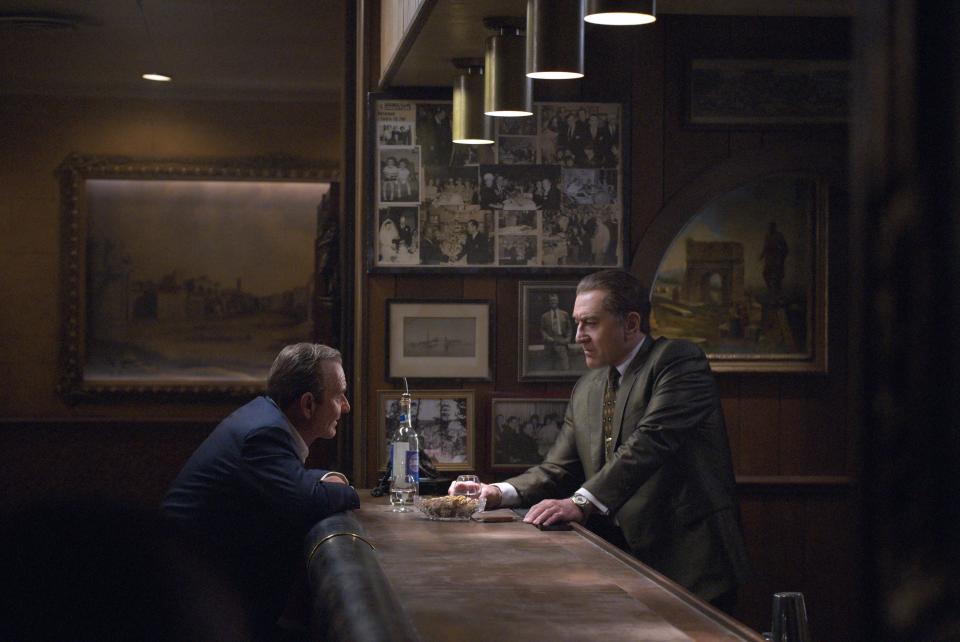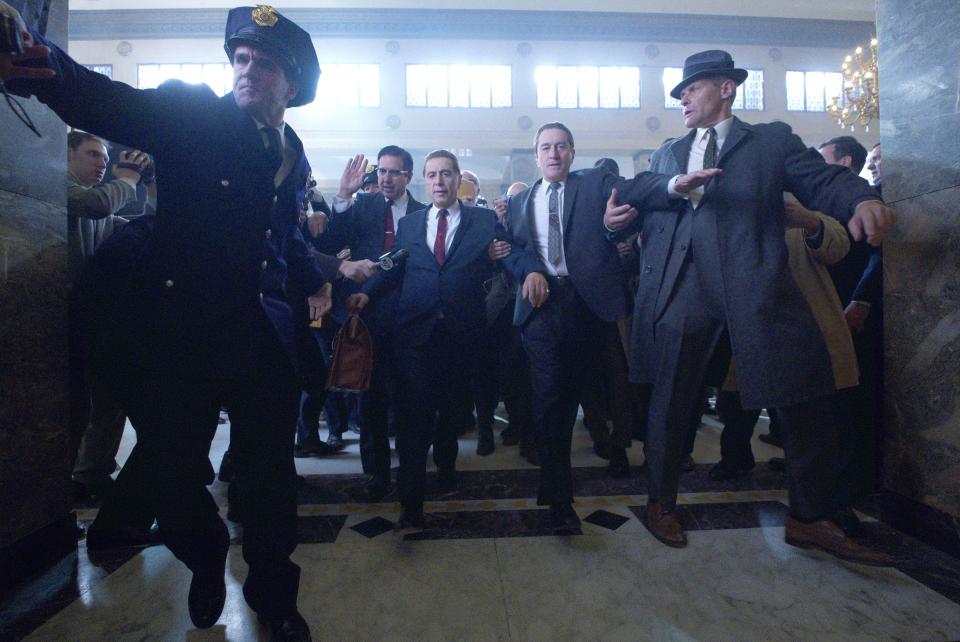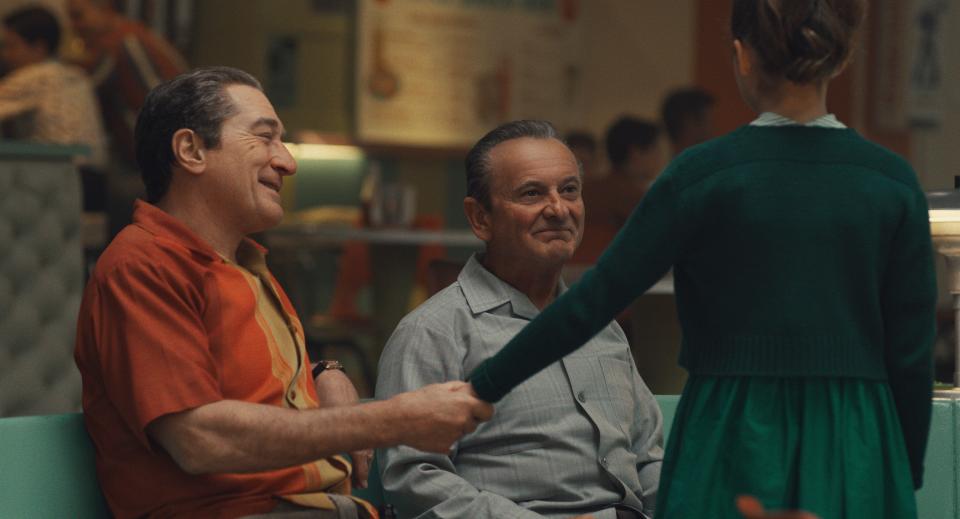Review: With De Niro, Pesci and Pacino, gangster epic 'The Irishman' lives up to the hype
Martin Scorsese may not love the "Avengers" movies, but the Oscar-winning director can certainly put together his own super-team.
His new Netflix gangster epic "The Irishman" (★★★? out of four; rated R; in New York and LA theaters on Friday, expanding through November, and streaming Nov. 26) doesn't disappoint with its all-star Mob-movie trio, pairing Scorsese favorites Robert De Niro and Joe Pesci again alongside Al Pacino (working with the director for the first time).
Sprawling across 3? hours – and several decades – with infamous figures and an immersive narrative, it's an amazingly crafted historical fiction that's much more than guys shooting each other in the head, though there is still plenty of that.
'Irishman' first reactions: Critics call Scorsese's latest an 'instant crime classic'
'I can’t wait to see him in jail': Robert De Niro calls Trump a 'gangster president'
"The Irishman" in question is Frank Sheeran (De Niro), a World War II veteran and Philadelphia truck driver who delivered slabs of meat before getting involved in organized crime. He becomes a hitman of note, though the audience first meets him in a rest home, nearing his own death and coming to grips with a career of bloodshed.

Frank's tale bounces between decades but centers on his close friendship with two men. Russell Bufalino (Pesci) is a crime boss who has a chance meeting with Frank. He's taken by the former soldier's mastery of Italian from the war, and Russell looks out for Frank as he moves up the ranks.
Frank is later hired as muscle for Teamsters leader Jimmy Hoffa (Pacino), and the two strike up a fast personal connection.
"I thought I was talking to General Patton," Frank says of the charismatic (and ill-fated) union icon – though Frank has his loyalties tested when Hoffa runs afoul of various crime families.

History buffs will enjoy how the story by Steven Zaillian ("Schindler's List") views real-life feuds like Hoffa vs. Robert F. Kennedy (Jack Huston) and events such as Bay of Pigs, the Kennedy assassination and Watergate through a gangland lens.
The film, an adaptation of the 2004 confessional "I Heard You Paint Houses," is also a technical marvel, with Scorsese employing some de-aging movie magic to track his main characters over time. With the exception of young 1950s Frank looking creepily unreal in a couple of instances, it's all impressively uncanny and key to caring for these personalities as they evolve and change.
Playing Frank from an ambitious upstart to thoughtful old man, De Niro lends a quiet vulnerability as his character balances his professional and personal lives. "The Irishman" leans more into his crime family than his real household, though it's Frank's love for his estranged daughter, Peggy (Anna Paquin) – who has witnessed her father's dark side – that leads to the most emotional moments.

Pesci's Bufalino is a cool customer who icily handles business – a polar opposite to his well-known "Goodfellas" role but no less effective. And a fantastic Pacino goes, well, full Pacino as Hoffa, an unbalanced, eccentric guy who held almost absolute power among America's labor unions.
Since 1973's "Mean Streets," Scorsese has proven over and over to be a master of the gangster film, and "The Irishman" has everything a crime lover would want, from violence and tension to an intriguing mundaneness. (One scene finds Frank strategizing the best handguns to pull off a job as one would pack for a weekend getaway.)
What's wonderfully explored here, though, isn't the killer streak but instead the gravity of taking a darker path and being left at the end with nothing but bloody memories.
This article originally appeared on USA TODAY: 'The Irishman' review: Robert De Niro leads Martin Scorsese's mob hit
